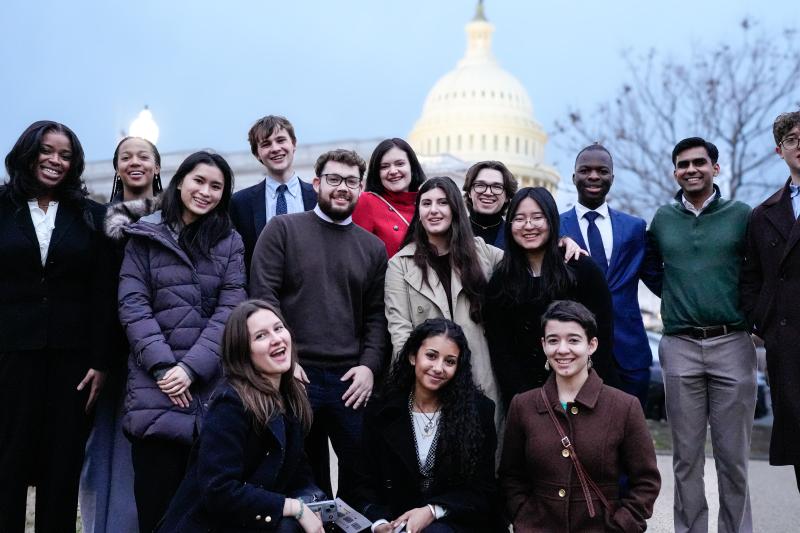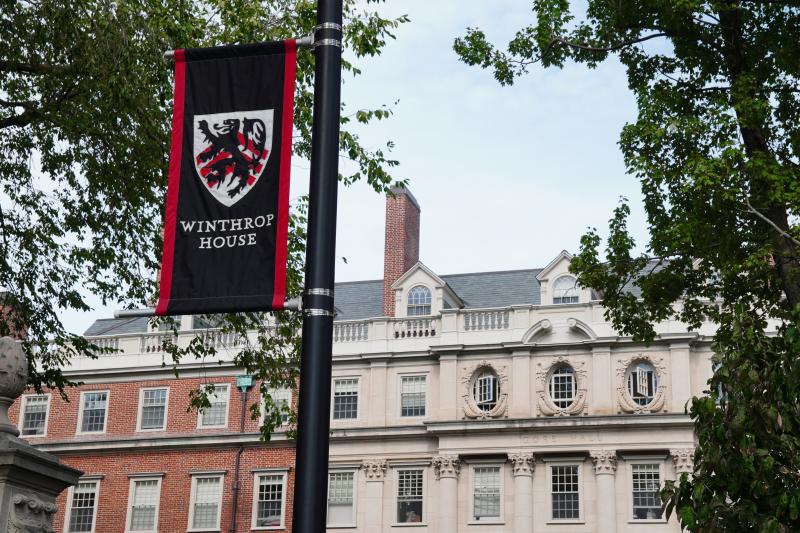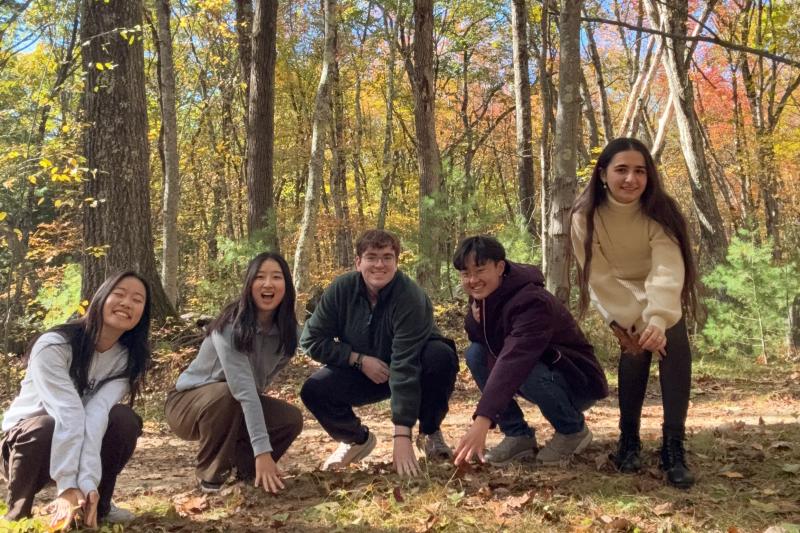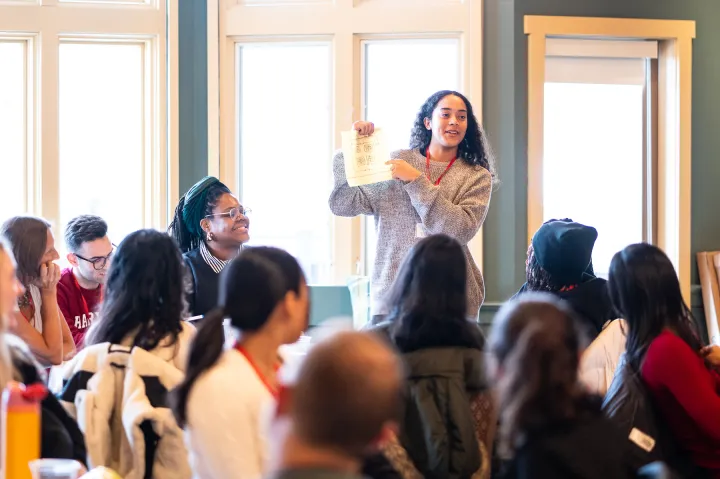
Harvard College Launches ‘Mattering’ Initiative
On a cold yet brilliant January day in Stowe, Vermont, dozens of Harvard students and staff gathered at a mountain lodge to imagine a campus where every student feels they matter.
This two-day Wintersession retreat, organized by the Dean of Students Office (DSO), launched the mattering initiative on campus. Journalist and author Jennifer Breheny Wallace ’94 introduced the concept of mattering to Dean of Students Tom Dunne after encountering research on mattering for her book, Never Enough: When Achievement Culture Becomes Toxic–and What We Can Do About It. Inspired by the promise of mattering as an antidote to toxic achievement culture, Wallace and colleague Dr. Sarah Bennison founded the nonprofit Mattering Movement.
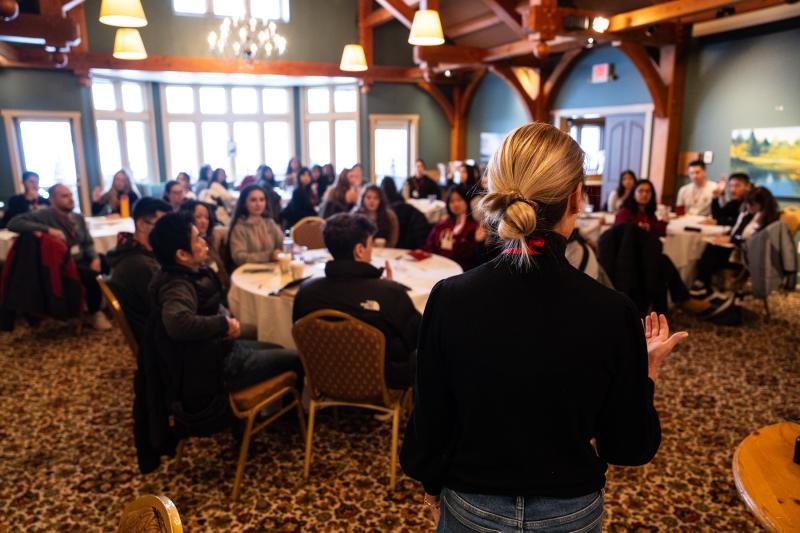
Put simply, mattering means feeling valued, and adding value separate from one’s achievements. The mission of the Mattering Movement is to create communities where students and faculty feel valued and have opportunities to add value. It aims to redress the “widespread mattering deficit” among young people, who suffer from alarming rates of anxiety, depression, and loneliness.
The Stowe retreat introduced participants to some of the key principles behind mattering and had students thinking about ways to bring those principles to Harvard. It was also meant to put mattering into practice in real time, building community between strangers and encouraging deep discussions about life and its meaning. According to participants Lexi Williams ‘26, and Ari Kohn ‘26, the retreat left an enduring impact. Despite the short length of the retreat, students left Stowe having formed “long-lasting friendships” between people who previously didn’t know each other, said Williams.
The retreat programming balanced opportunities to bond with one another with conversation about the obstacles that hinder mattering at Harvard, such as the overwhelming emphasis students place on credentials and accolades—and the busy, fast-paced culture that results. The retreat encouraged attendees to brainstorm what “a mattering campus [might] look like,” said Kohn. This ideology also influenced the retreat’s downtime activities of playing board games, eating dinner together, practicing meditation, and going skiing and snowshoeing on the forested mountains of Stowe.

For Williams, one of the more memorable moments of the retreat was an activity led by Tammy McLeod, President of the Harvard Chaplains, where participants broke out into groups of three, with each person taking ten uninterrupted minutes to talk about their life stories, including all the highs and lows. “It gave me a chance to think aloud about all the things that gave my life meaning and value, and gave me undivided attention to the testimonies of my partners,” she said. It was such a captivating experience that Williams and her group stuck around “for hours afterward, just talking and hanging out.” At one point in the conversation, she thought to herself, “Oh, this is it. This is what mattering is. It’s [when] you feel like you’re valued, and that you’re providing value to other people.” For Williams, this moment is an example of the work that the Mattering Movement aims to do, in “creating a culture where people care about each other outside their accomplishments.”
Creating a new culture at higher education institutions such as Harvard is no easy feat. Though attendees at the retreat are aware of how difficult it will be to replicate the retreat experience, it was one early step in the DSO’s work on mattering at the College. It generated an abundance of ideas about what might be done to shift the culture, however small, at Harvard. Kohn suggests that Harvard might do well to create designated mattering spaces on campus or to bring the language and ideas of mattering into certain milestone events for Harvard students, such as First-Year Orientation and Housing Day. Some steps have already been taken to introduce the notion of mattering on campus. The DSO held a Mattering Kickoff at the Cambridge Queen’s Head in February, giving students a chance to swap ideas on how to promote mattering on campus. Many first-year proctors have begun applying the insights of mattering to their work, making a point of telling students through conversations and hand-written cards that they matter for reasons beyond their GPAs and resumés.
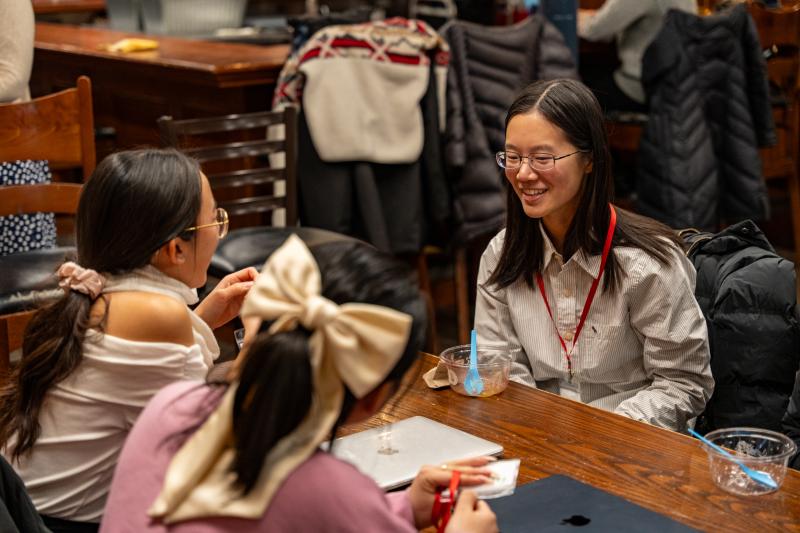
More work will surely be done to create a culture where every person feels a sense of mattering to the community, separate from their achievements. Williams and Kohn quickly point out that the work starts with each of us. Williams believes we could all try to incorporate a little more slowness into our everyday lives, and a little more empty space in our schedules to allow ourselves to “take the time to care for one another.” It is all too easy for Harvard students to pack their days with tasks and appointments, since many feel they will fall behind if they are not constantly hunting for new opportunities. The mattering initiative at Harvard College reattributes value beyond work to ultimately ensure a campus community that feels —and understands how—they are truly valued.


